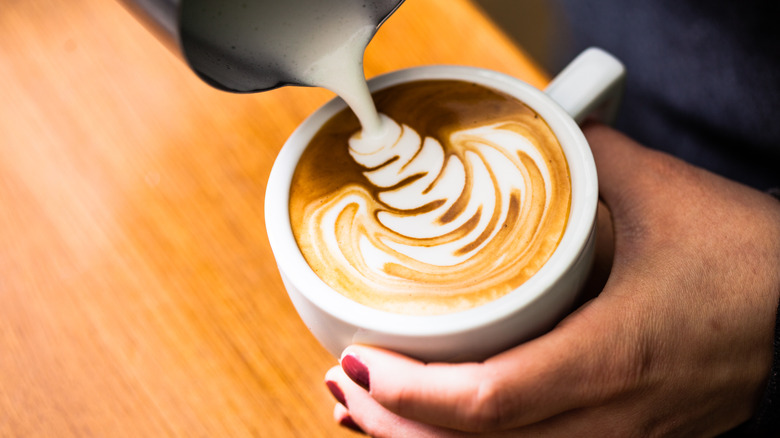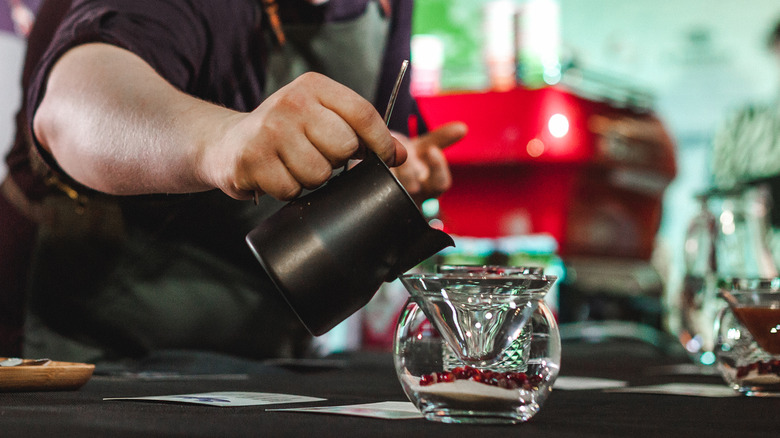How The World Barista Championship Has Evolved Over The Years
In 2000, the World Barista Championship set out to provide credibility and substance to the barista profession by creating a platform for professional baristas to showcase their skills. It was a small gathering held in a corner of a convention center in Monte Carlo, but baristas were dedicated and judges were attentive.
The winner of this first competition was Robert William Thoresen; he was the only participant to bring his own milk, coffee grinder, and make a drink with latte art. The espresso machine the competitors used had only two group heads, and a mirror was placed above the set-up for the audience to watch what the baristas were doing as judges ranked drinks according to technical and sensory criteria. As an announcer boomed interjections into a microphone, judges would evaluate baristas' comfort with the machine and ask questions as the baristas tried to crank out drinks for the judges to sample.
Since that time, the competition has been held in various countries around the world and has evolved to accommodate the demands of hundreds of competitors within a more sophisticated and growing coffee industry.
An evolving profession and industry
As more competitors signed up for the international competitions, rules became more clear and judges' scoresheets became less subjective, notes the Specialty Coffee Association. Milk had to be from a cow, and participants weren't allow to put anything other than coffee in the espresso machine (some had added chiles and ginger into their brews). Scoresheets were adapted – "Does the barista seem to enjoy what (s)he is doing?" was removed — and in 2007, judges were required to rank drinks based not on their own individual preferences, but on the notes provided to them.
By 2013, judges were required to pass skills-based tests, and committees were established to maintain the reputation and prestige of the event. On its website, World Barista Championships outlines a series of revisions to the events' rules and regulations, including new scoresheets and rules for the 2022 competition. The organization asserts changes are made to produce a more consistent event and following the COVID-19 pandemic, keep participants safe.
Justin Metcalf, ASEAN Coffee Federation Board Member and Coffee Institute Chief, acknowledges the coffee competition has achieved what it set out to do: elevate the barista profession, encourage development within coffee-producing countries, and build bridges between countries that make and consume coffee products (via LinkedIn). As the competition continues to amplify talent and help baristas advance in their careers, additional changes to the format and competition may be made.

